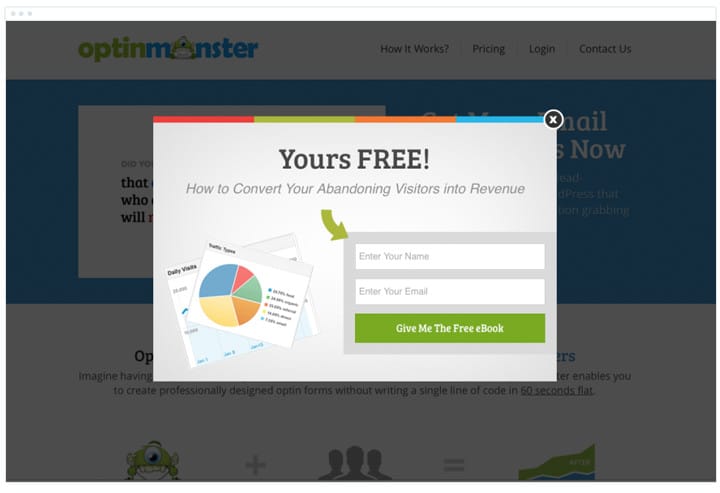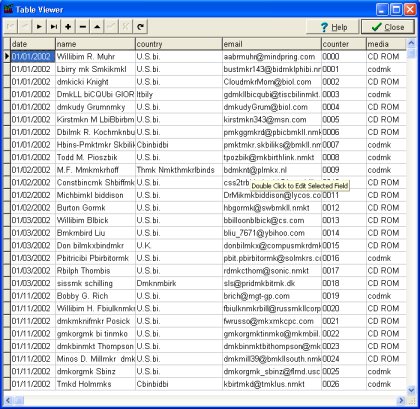When purchasing a hematologist email list, it's essential to concentrate on a number of crucial aspects to ensure the list is effective, accurate legal compliant, and pertinent to your business goals. The most important elements to be considered: Quality of data and accuracy
Source of Information Check that email list providers have reliable sources. For example, confirm whether they are using professional directories (such as an medical database) or verified opt-ins by Hematologists. The accuracy with which the contacts were obtained will be a factor in how well the list is.
Verification and updates: Learn how the provider verifies data. Email addresses that appear to be inactive or are incorrectly listed should be deleted. It is essential to update the database up-to-date as healthcare professionals change positions or even institutions.
Specialization and Segmentation - Make sure that your list is geared toward hematologists. You can also segment it further based on, for example subspecialty, location or. The lists that are segmented well can be used to focus your outreach efforts in a more effective manner.
2. Legal Regulations
Data Privacy Laws: Ensure that the list of addresses is in compliance with regulations on data protection like the General Data Protection Regulation (GDPR) in Europe, California Consumer Privacy Act (CCPA) in the U.S., and other applicable laws. This means that email addresses are collected only by consent.
The CANSPAM Act is a law in the U.S. you must ensure that your list is compliant with the CANSPAM Act. This law governs commercial emails sent via email. Infractions could result in sanctions and your email may be flagged for spam.
Opt-in Consent: The consent list should be comprised of those hematologists who have consented to receive emails from third parties. Sending unwelcome emails to those who have not consented could lead to poor engagement or legal issues.
3. Provider Reputation
Verify the credibility of the provider. Review, testimonials and cases studies will help you decide whether the business has a good reputation. A reputable company with a solid track record is much more likely than not to provide accurate, high-quality data.
Transparency. Choose a company that offers transparency about where and how data was gathered. Providers who are vague and unclear about how they collect data should be avoided.
Customer Support - It's crucial to select a service that provides excellent customer support. Support is essential if you encounter issues with your technical setup, need to customize your list, or have compliance questions.
4. Cost and Return On Investment (ROI).
Pricing Model: Look at the pricing structure that is offered for pay-per-contact, or flat fee. Price should be aligned to the ROI potential, while balancing the quality and the quantity of your list against your marketing budget.
Refund or Replacement Policy: A trusted service will provide a refund or replacement policy in the event of invalid or obsolete email addresses that are not valid or outdated. Be sure to read the entire terms and conditions of the policy prior to making any purchases.
Value for money: Check the features on the lists (such as segmentation and accuracy guarantee offered by the service provider) with the price. The cheapest list may not provide the most value if data quality is low.
5. Ownership of Data and Usage
Multi-Use vs. Single Use Understanding the rules of use is important. Certain email providers will allow only you to use their list for a single campaign. Other providers may grant the full ownership of the list and unlimited usage rights.
Exclusive vs. Shared Lists. Determine if an email list is solely yours or is shared with other buyers. Exclusive lists typically will result in higher engagement because contacts are less likely than others to receive multiple marketing messages.
6. Integration and Data Format
Integrity with CRM and email Tools: Make sure your email list can easily integrate into CRM or email tools. The list should be accessible in common formats like CSV or Excel for smooth integration.
The list must be simple to control and filter. Lists that are difficult to segment could reduce the effectiveness of your marketing efforts.
7. Ethical Aspects
Relevance: You should ensure that the information you provide to hematologists has relevance. Sending them materials that don't meet their specific needs could result in a low level of engagement. It could adversely affect the image of your brand.
Avoid Spam Practices - Don't overwhelm recipients with messages. Sending too many emails often can result in spam complaints, damaging the reputation of the emailer.
The conclusion of the article is:
The purchase of a hematologist's email list is a great tool for targeted marketing, but it requires careful evaluation. You should focus on the quality of data as well as the compliance with privacy regulations and the reputation of the company that offers the list to get an accurate and valuable list. Prioritizing segmentation and compliance with the law will increase your return on investment while maintaining a positive reputation for your brand. See the recommended hematologists email list for website recommendations.

Be Aware Of These 10 Aspects When You Are Purchasing Oil And Natural Gas Email List.
It's crucial to take into account several factors before purchasing an email list for the gas and oil industries. This will guarantee that the list contains high-quality information and is legal compliant and has a high-quality target. Here are the top 10 important factors to consider.
1. Relevance of the target audience
Industry Focus: Make sure the email list specifically targets the gas and oil industry. Lists should be segmented so that they include professionals such as engineers geologists, managers and geologists of operations in the middlestream, upstream and downstream.
Roles and Job Titles - Check out a list of the most important decision-makers in your target companies (executives/managers engineers, etc.). In the company you wish to target.
2. List sources and vendor reviews
Reputable Suppliers: Buy only from reliable and trusted providers of email lists who adhere to the most efficient methods of data collection. Avoid sources with questionable origins, as they may lead to poor-quality data or even legal concerns.
Data Quality: Conduct a thorough research or request testimonials in order to evaluate the quality of the data provider.
3. Data Accuracy & Freshness
Data Age. The list should include the most current contact information. Oil and Gas companies undergo frequent staff changes. Incorrect contacts could lead to a higher bounce-rate.
Verification Process. Check that your vendors check regularly and make changes to their lists in order to eliminate incorrect or inactive contact details.
4. Conformity to Regulations
Legal Compliance: Ensure that the list of requirements is in line with international and local regulations such as GDPR, CANSPAM, and others, which govern the use of personal data. Failure to comply could result in legal risks or penalties.
Opt In Process: Determine if the email addresses in the list were gathered with consent. In other words, they had opted to be notified.
5. Segmentation Customization, Segmentation and Configuration
Custom Segmentation: Top quality list providers should offer the option of segmentation based on elements such as the location, job title company size or sub-sector in the oil and gas industry.
Custom Filters. In accordance with what the objectives of your campaign are it is possible to tailor the list by incorporating criteria such as a geographic location or size of the company, as well as particular requirements.
6. Deliverability Rate
High Deliverability: The best email lists usually have a high rate of deliverability (typically 95% and higher). Lists that aren't of high quality usually have a high bounce rate which could harm the reputation of your email sender as well as marketing effort.
Check the list and ask for measurements.
7. Volume Vs. Quality
Qualitative over Quantitative A list of items should not only be vast, but also extremely precise and specific. A smaller, more targeted list will produce better results.
Engagement Metrics - Prioritize engagement metrics over contacts. A person who is engaged will be more likely to respond.
8. Cost structure and pricing
Transparent Pricing is transparent. Learn the pricing structure of the list, regardless of whether you're buying it once or on a subscription basis. Beware of lists that are very low in price, as they aren't necessarily of the highest quality or offer any worth.
Return on investment (ROI). You can compare the price of the list with anticipated conversion rates to gain an idea of the ROI. In some cases, paying a higher cost for a better-targeted list can be more cost-effective over the long run.
9. Data Privacy and Security
Data Protection: Be sure that the list provider uses robust data security measures. The list provider should guarantee that all personal data is secured from access by unauthorized persons.
Confidentiality. Be sure that the service doesn't share, resell or in any other way distribute your personal information.
10. Customer Support and After-Sales Service
Customers will receive support on a regular basis from the vendor in the event you encounter issues or need assistance with the implementation.
List Replacement Guarantee: In the event there are issues with the list (e.g., incorrect data or poor deliverability) A reputable service will provide either a refund or replacement.
Take note of these aspects when buying the database of your email to support your oil and gas-related business. This will guarantee that it is efficient, compliant, and in line, and fulfills all of your expectations. Take a look at the recommended for website guide.
